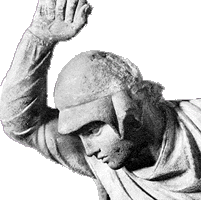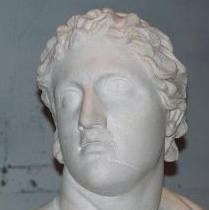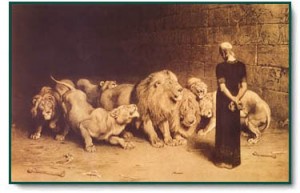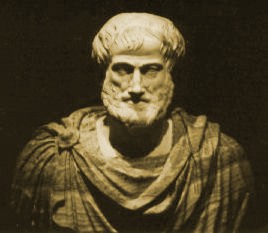 “Few modern historians accept Alexander’s greatness upon his military abilities alone, and none, certainly, upon the pomp which he acquired as Lord of Lords of the Persians and as Pharaoh, the god-king of Egypt. More noteworthy to them, as it was to many of his contemporaries, is Alexander’s surprising cosmopolitanism. By his colonization, Alexander spread the Greek language, Greek social institutions, and Greek culture from Athens to India. He seems to have envisioned a new culture rooted in Hellenism but united with the ancient civilizations of the Near Eastand any other area which might be added to the empire of the future.”[1]
“Few modern historians accept Alexander’s greatness upon his military abilities alone, and none, certainly, upon the pomp which he acquired as Lord of Lords of the Persians and as Pharaoh, the god-king of Egypt. More noteworthy to them, as it was to many of his contemporaries, is Alexander’s surprising cosmopolitanism. By his colonization, Alexander spread the Greek language, Greek social institutions, and Greek culture from Athens to India. He seems to have envisioned a new culture rooted in Hellenism but united with the ancient civilizations of the Near Eastand any other area which might be added to the empire of the future.”[1]
1 Now at this time while the disciples were increasing in number, a complaint arose on the part of the Hellenistic Jews against the native Hebrews, because their widows were being overlooked in the daily serving of food (Acts 6:1).
These corresponding narratives from history, one secular, the other Bible, corroborate Alexander the Great’s critical role of preparing the world for the first coming of Christ. Alexander’s conquering of the East in the fourth century BC cultured its people with the language of the New Testament, Koine (common) Greek, so all the world could understand and translate it the three centuries following Christ.
In 2005 when film maker Oliver Stone brought Alexander back to life, he didn’t touch on Alexander’s divine role in history. Though his script used the device of flashback, he didn’t revisit history to show how the Persian Empire Alexander conquered was descendant from the Persian king the Old Testament prophet Daniel served and wrote of, Darius I. Flashing back through the narrative of Alexander’s General Ptolemy, this would have been easy, since he would have known the history as well as any for the telling. What little Stone strived to show audiences was the orgy palace life of King Philip and a rambling Alexander who talked too much about too little, with only one major battle scene. He even went beyond the pale of contemporary Hollywood smut in demoralizing his plot by portraying Alexander’s trusted kingdom confidant, Hephastion, as his homosexual lover. Despicable. So much so, that a group of Greek lawyers have threatened to sue Stone and Warner Brothers. And the movie bombed at the box office. But Alexander has revisted western culture, so Eschatology Today will fill in some historical blanks.
Alexander in Bible Prophecy
Who in western civilization that has had heard anything about the Bible, hasn’t heard about Daniel in the lion’s den? It was the new government of Darius I that threw Daniel to them. After Daniel supernaturally survived, Darius threw Daniel’s accusers to the lions and restored the prophet to the place of kingdom prominence experienced under Nebuchadnezzar (Daniel 5).
Daniel 6:26
“…for he [is] the living God, and stedfast for ever, and his kingdom [that] which shall not be destroyed, and his dominion [shall be even] unto the end.”
And, it was during the reign of Darius I that Daniel received his revelation of Alexander the Great.
We Four Kings of Orient Are, Preparing the Way for the Bethlehem Star…
Daniel foretold three future Persian kings who would precede Alexander in chapter 11 of his Old Testament book.
Daniel 11:1-4
1 “And in the first year of Darius the Mede, I arose to be an encouragement and a protection for him.
2 “And now I will tell you the truth. Behold, three more kings are going to arise in Persia. Then a fourth will gain far more riches than all of them; as soon as he becomes strong through his riches, he will arouse the whole empire against the realm of Greece.
Cyrus was the first of the three prophesied kings, Artexerxes the second, Asahurus the third, and Xerxes the fourth.
Cyrus
Darius’ son Cyrus was the great redeemer of the Hebrew captivity who released the Hebrews to return to their national home.
Ezra 1:3
3 ‘Whoever there is among you of all His people, may his God be with him! Let him go up to Jerusalem which is in Judah, and rebuild the house of the LORD, the God of Israel; He is the God who is in Jerusalem.
Artexerxes
Cyrus’ son Artexerxes is a key historic figure in the Old Testament Books of Nehemiah and Ezra. It was Artexerxes who allowed Ezra to rebuild the Hebrew temple and granted Nehemiah the right to rebuild Jerusalem’s walls.
Nehemiah 2:6
6 Then the king said to me, the queen sitting beside him, “How long will your journey be, and when will you return?” So it pleased the king to send me, and I gave him a definite time.
Ahasuerus
Ahasuerus’ attitude toward the rebuilding and population of Judah was swayed by political sentiment, but he was changed through his marriage to Esther. [2]
Esther 2:17
17 And the king loved Esther more than all the women, and she found favor and kindness with him more than all the virgins, so that he set the royal crown on her head and made her queen instead of Vashti.
Xerxes
The fourth king, Xerxes, sought to conquer Greece. His campaign against them and the defeat he encountered is famous in history. “It is he who went out was the terror of Greece in his return was the scorn of Greece.”[3]

Alexander
Finally, Alexander’s coming is prophesied in verses 3 and 4, including the division of his kingdom that would expand Greek influence throughout the earth.
3 “And a mighty king will arise, and he will rule with great authority and do ashe pleases.
4 “But as soon as he has arisen, his kingdom will be broken up and parceled out toward the four points of the compass, though not to his own descendants, nor according to his authority which he wielded; for his sovereignty will be uprooted and given to others besides them.
Though only 20 when Alexander took the throne, he was already a proven cavalry commander. Accounts of his military genius herald his bravery and “feel for the field.” He was responsible for his father Philip’s victory that finally conquered Greece, and many other battles due to his bold tactical assaults[4]. Assaulting the gaps and flanks created by the Greek army’s infamous Phalanx (rows of infantry armed with 14 foot pikes [spears]), the hardened warrior made his name in battle by charging the lead and inspiring his men. He made his name as a world leader by colonizing his conquered territories in a cosmopolitan atmosphere, indoctrinating the world in “all things Greek.” Always in front, never behind, Alexander the Great conquered the world of Darius III (indrect descendent of Darius I), like a well-played game of “Risk”.
Alexander’s egalitarian vision of assimilating the nations was demonstrated through his taking of a Persian wife, and directing his commanders to do the same. Tutored by Aristotle, his cultural influence took root in the conquerer’s prized Egyptian metropolis Alexandria, where he chose to build a great city that flourished in academics and arts. But Alexander’s heyday was cut short when he died from fever thirteen years into his reign. He was 33.
Tradition holds when asked for a successor while on his death bed, Alexander replied: “To the Strongest.” So his highest-ranking generals divided the empire among themselves. Twenty years of war waged by Alexander’s jealous younger commanders finally culminated in the geopolitical divisions of Persia, Mesopotamia, Syria, Asia Minor, Macedonia, and Egypt. The general Oliver Stone uses as a story teller in his film, Ptolemes, was granted rule in Egypt where he reigned as Pharaoah in Alexandria, later adding Phoenicia and Palestine to his state.
The remainder of Daniel 11 discloses prophesied kingdom developments that took place the century before Christ involving the rulers of Alexander’s segmented principalities of Syria (king of the north), and Egypt (king of the south). Because of the sudden resurrection time thrust Daniel 12:1 transitions the prophecy with, the last section of chapter 11 could pertain in double-fulfillment to the last-days antichrist. But that is for another article.
The point of this article is, that Alexander lived and fulfilled the great achievements of his day is no truer than the fact that Daniel, Nehemiah, Ezra, and Esther, all lived during the days that led up to him, to ensure the world was ready for the advent of Christ. (On a side note, the “magi philosopher/priests from the east” who followed the star to warn and finance Jesus, were also Persian [Matthew 2:1]).
Darius’ Persian empire eventually succumbed to Alexander’s, which in turn succumbed to Rome’s, which in turn was in place when the eschatological promises of the Messiah finally manifest.
Alexander’s Bible Lands
Those who know their Bible understand Paul was born again in Syria, ministered predominantly in Asia Minor, and received a vision redirecting him into Macedonia. Incoporating Phoenicia, Palestine surrounded and stretched north of Galilee and Capernaum where Jesus lived and ministered. On the shore of the Mediterranean to the west was the city of Ptolemais, named after the general who sanctioned the land following Alexander’s death. To the north of Capernaum was Chorizan. Northwest from there were the coastal cities of Tyre and Sidon, also made famous in Gospel history (Matthew 11:21; 15:21; Mark 3:8; 7:31; Luke 4:26; 16:17; 10:13).
To the Jew first, and also the Greek…
Confirmed by the apostle Paul’s statement in chapter one of his epistle to the Romans, the culture of Paul’s day was Alexandrian, Hellenistic, Greek.
Romans 1:16
16 For I am not ashamed of the gospel, for it is the power of God for salvation to everyone who believes, to the Jew first and also to the Greek.
The great apostle didn’t say God’s gospel of salvation was to the “Jew first and also to the Roman,” because the culture of the first-century church was Alexandrian Greek. Jews were Jews, Gentiles were Greeks. (Also see 1 Corinthians 1:22-23 and 12:13; Gal 3:28-29; and Col 3:11.)
The account of the New Testament’s church history book was written by a Greek to a Greek.
Acts 1:1,2
1 The first account I composed, Theophilus, about all that Jesus began to do and teach,
2 until the day when He was taken up, after He had by the Holy Spirit given orders to the apostles whom He had chosen?
So was the Gospel of Luke:
Luke 1:1-4
3 …it seemed fitting for me as well, having investigated everything carefully from the beginning, to write it out for you in consecutive order, most excellent Theophilus;
4 so that you might know the exact truth about the things you have been taught?
And, remember, the Greek author Luke’s biblical church history book mentions a group of Hellenized Jews who were an aparrently substansive group in the life of the early church (Acts 6:5). Read the names of those selected to assist their needs and you recognize they were Hellenized Jews also, or full blooded Greeks.
There is no evidence of Alexander’s conversion to Jehovah as occurred to Nebuchadnezzer (Dan 4:37), because he had no Daniel to represent God’s presence and will. But when the New Testament was inspired over the next 70 years, every book in it was written in Greek for easy comprehension, and God made sure of their distribution, through Alexander the Great.
Daniel 4:32
“…the Most High is ruler over the realm of mankind and bestows it on whomever He wishes.”
“The break up of Alexander the Great’s empire about 300 BC,” writes Edward Burns, Robert Learner, and Standish Meacham in,Western Civilizations, “inaugurated a peculiar period in the history of the ancient world. International barriers were broken down; there was an extensive migration and intermingling of peoples; and the collapse of the old social order gave rise to profound disillusionment and a vague yearning for individual salvation”[5].
Think about that the next time Alexander comes up on the History Channel, in a classroom, or in a book.
Mark Norris, Publisher, Eschatology Today, M.A.
[3] Matthew Henry’s Commentary, Biblesoft, Daniel 11.


